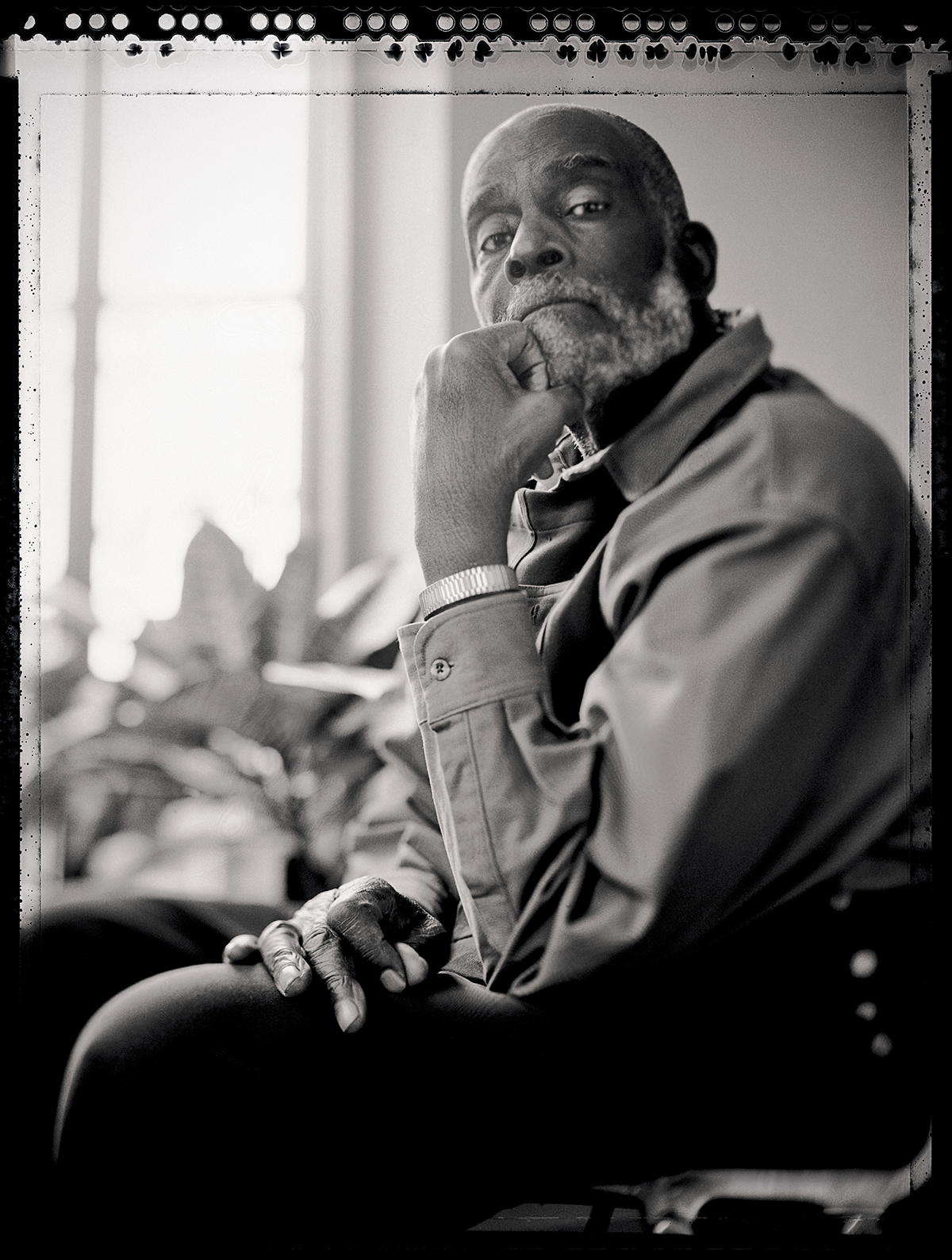Top of Mind: Mel King

King at his South End Technology Center, which he founded to provide low-cost computer training. (Photograph by Sean Alonzo Harris)
Mel King has been an activist, community organizer, social entrepreneur, and author (most recently of a poetry collection titled Streets). But he proudly claims as his principal vocation one with less noble connotations: “I like being called a politician,” he says. His win in the 1983 Boston mayoral primary, viewed then as momentous for a divided city, stands out today for another reason—that campaign was the last truly energizing contest Boston has had. Could the Mel King of then win if he were running now? Says the Mel King of today: “I’d like to think so.”
Here are some of the best quotes pulled from his interview with Boston editor James Burnett:
I think there’s room for a lot in this year’s mayoral campaign. I think there’s room for serious discussion around the fact that the murder rate is—I’ll just say astronomical, because any amount is serious. Frankly, I don’t think they have a clue about what to do. I’m not sure I know who does. But I do know that this administration, they have not been able to get a handle on it.
…
I’ve talked to Flaherty, I’ve talked to Yoon. McCrea was over at the house when he was running for council. I don’t know if there’s ever a wrong candidate. The question is, What are the techniques they’re using?
…
For all they’ve talked about improving the city schools, we’ve had a system of low expectations. We’ve had algebra as a ceiling when calculus should be the floor.
…
I’m not one who buys into this hope business, by the way. Hope puts it almost in the realm of chance. I think we ought to be about expecting.
…
I think the issues with Dianne Wilkerson are personal and also get magnified. I thought the Globe was relentless. I’m not sure if she fought back enough or not, because she did and still does bring community support. Taking it for granted cost her.
…
I was in the legislature 10 years. The day it felt good that somebody opened the door for me and said, “Hello, Mr. Representative”—I knew that was the time to go.
…
People would call up my legislative office, and they would want me to call somebody for them. And I would say, “Here’s the number, get on the phone and call yourself.” They’d be furious, but then they would call and get in to see who they wanted to see, and they’d say, “You know what? You were right.”
…
A statement I picked up way back was, “We complain about the dirt, and we have the broom in our hands.”
…
You know the mosque that just went up? To have witnessed that, I thought, Boston must be a first-class city, to embrace something like that, and at this time. I was so high from just watching them put the minaret up.
…
Every year right after July Fourth, they have the Festival Betances on the plaza of [the] Villa Victoria [public housing complex] in the South End. A lot of white people who live around here don’t get it, and don’t go. And it’s just so wonderful. It’s an incredible event.
…
I grew up at a time when the images shown of people like me were negative. Then I got a chance to go to college in South Carolina. There was a movie theater there, the State. It was owned by and run by black folks. They showed films with people who looked like me, who were doing everyday things. I learned then the big issue was who controlled the content.
…
I opened the South End Technology Center with the distinct idea that this technology, put into the hands of every one of us, [gives us] the ability to tell our own stories. In this interview, it’s my story, but you’ll tweak it to suit your purposes. I can put my stuff online, and have it be mine, unabridged.
…
I’m a Mac guy.
…
I’ve been saying to folks, “Where’s Ross Perot?” Because right now we need the kind of talk he used to give about the economy.
…
See, you have to be careful. I want to make sure it’s clear I know some things are better than they were before.